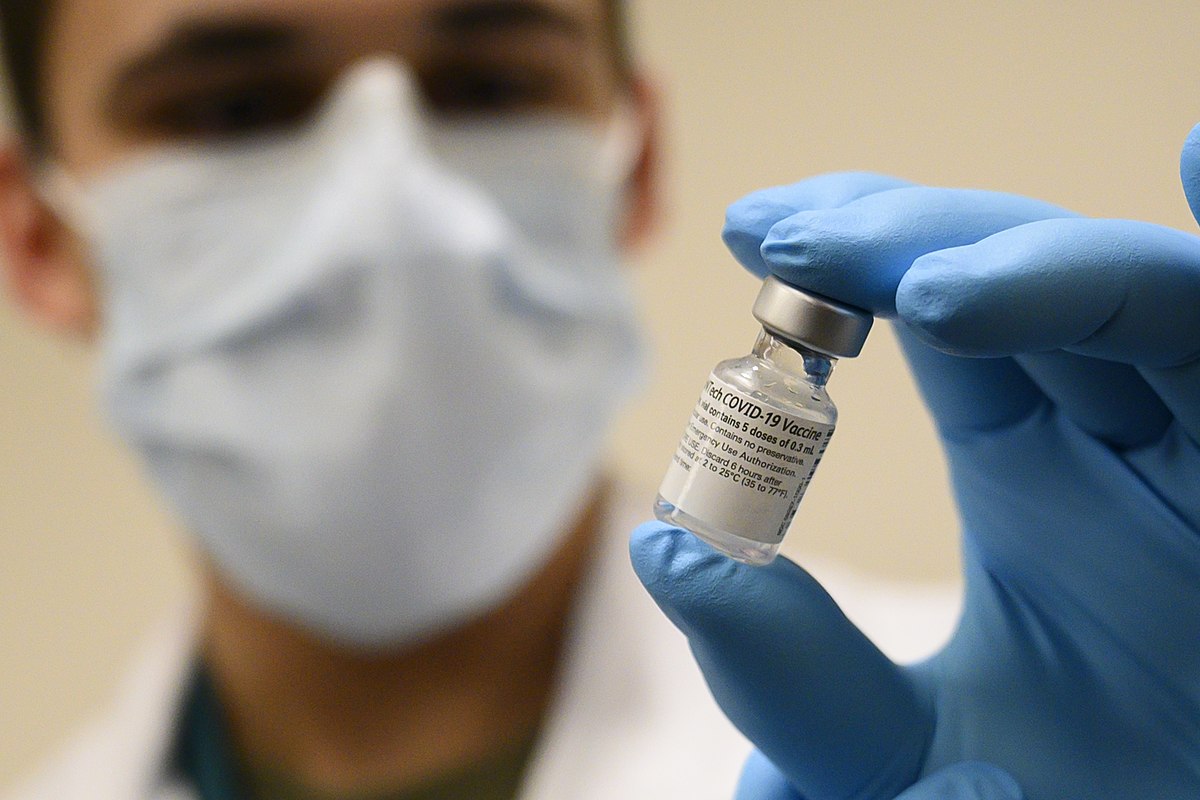 (DoD photo by Lisa Ferdinando)
(DoD photo by Lisa Ferdinando)
Shaping Soft Power in the Post-Pandemic World through “Vaccine Diplomacy”
With over 100 million confirmed cases and two million deaths across the globe, the coronavirus pandemic has spurred a global vaccine race. However, efforts to safeguard the equitable distribution of COVID-19 vaccines, such as the World Health Organization’s (WHO) COVID-19 Vaccines Global Access Facility (COVAX) initiative, have been stymied by individual nations. Wealthy states face accusations of “vaccine nationalism” as they buy up available doses for exclusive distribution to their citizens—reserving enough vaccines to inoculate their populations multiple times over while lower- and middle-income nations struggle to provide doses to even a fraction of their populations.
Having the highest COVID-19 case count globally, the United States has duly focused on domestic vaccination. However, while scrambling to defend itself from the pandemic, the U.S. demand for vaccines has reduced the availability of Western vaccine markets to developing nations. As a result, these nations have turned to states like China and Russia whose global vaccination programs may have overriding political interests.
Russian and Chinese Vaccine Diplomacy
China’s and Russia’s global vaccine rollouts are laudable: Both nations created effective, affordable and easily transportable vaccines and are currently seeking approval for COVAX distribution. China has even voiced support for making the COVID-19 vaccine open source. Yet both Russia’s and China’s global health initiatives have been colored by skepticism of their altruism.
China’s Health Silk Road
China, for example, may be leveraging the COVID-19 pandemic to expand its “Belt and Road Initiative,” an infrastructure and economic development program in Asia, Europe, Africa, and Latin America that has doubled as a channel for China to export its influence. Last March, Chinese president Xi Jinping proposed the formation of a “Health Silk Road” whereby China would elevate its status as a leader in global health. Through this initiative, China ran vaccine trials throughout the Middle East and Latin America, sometimes offering trial doses to high-level government leaders, and sold or donated 400 million doses of its Sinovac and Sinopharm vaccines to foreign countries.
While some vaccine recipients are close China allies, others are states with whom China might be hoping to build stronger political ties. For example, China’s $1 billion loan to ensure that its Latin American allies have access to its vaccines could bolster its relations with a region long-dominated by U.S. hegemony. Similarly, some of the largest consumers of China’s vaccines are countries bordering the South China Sea , provoking fears that China may use vaccine distribution to further its controversial territorial claims in the region.
Russia’s Sputnik V
Russia has also invested in a global vaccination program as a tool to bolster its image as a technologically competitive state and global leader. In August 2020, with a name purposefully reminiscent of Soviet Union prowess in the Cold War space race, Russia registered its first COVID-19 vaccine, Sputnik V. Originally met with international criticism and skepticism, the vaccine proved to be safe and 92% effective against the virus in a recent peer-review study. Amidst a slow vaccination rollout, this news puts pressure on a hesitant EU to work with Moscow for vaccine approval, especially as France and Germany voice interest.
So far, Russia has cornered a large portion of the vaccine market, boasting a cheaper and more easily stored alternative to Western vaccines. Like China, Russia is using the vaccine to fortify relationships with nations in Latin America and the Middle East, with over 50 nations and 1 billion doses of Sputnik V ordered worldwide. As Russia continues to publish its vaccine data and seek approval from WHO for COVAX distribution, it looks to project itself not only as a modern equal to Western nations but also as a capable global leader.
What Vaccine Nationalism Could Cost the US
China’s and Russia’s vaccine diplomacy has signaled their commitment to equitable vaccine distribution and reinforced their bid as legitimate alternatives to Western leadership. While benevolent Chinese and Russian participation in global governance during the pandemic is welcomed, the U.S. should be wary of the public health and political repercussions of failing to act beyond its borders and allowing China and Russia to dominate the global vaccine market. If the U.S. doesn’t aid in worldwide vaccine distribution, it could miss key opportunities not only to combat the coronavirus pandemic today, but also to shape future responses to public health crises and reassert its global leadership in the post-pandemic world.






